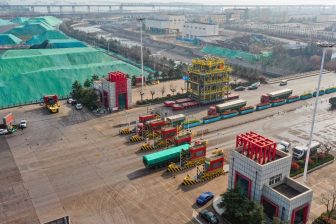
Russian government liberalises domestic heavy cargo transport legislation
The Russian government is liberalising domestic legislation in heavy cargo transportation to stimulate further growth in the sector.
The Russian-Ukrainian war and Western sanctions associated with it had a negative impact on the industry and led to its serious decline (up to 25%) during the period of 2022-2023.
Before 24 February 2022, project cargo was one of the most developed segments of the entire Russian cargo transport market, with annual growth rates up to 7-8%. However, the beginning of the war in Ukraine and Russia’s isolation in the international arena put an end to the existing hopes for further growth of the industry, at least with the same growth rates.
While the situation has generally stabilised in recent months, the industry’s further prospects are cloudy. Western sanctions put severe pressure on the implementation of many projects involving the delivery of superheavy cargo in Russia.
The Russian government is taking further measures to stabilise the situation. One such measure involves liberalising domestic legislation in the field of cargo transportation by lifting various bureaucratic hurdles and bottlenecks for services.
So far, some steps in this direction have already been taken, as starting from 1 March 2024, new rules for issuing a special permit for the transportation of oversized cargo came into force in Russia. In accordance with the state resolution, the entire process became more efficient and automated. That means all the permits needed to deliver superheavy cargo within Russia are issued within a few hours. In addition, according to Tatiana Damaskina, CEO of KMZ Cargo, one of Russia’s leading players in the sector, such services currently do not require licensing.
According to Russian sources, this is just the beginning. The Russian state is currently considering new measures to support the industry.
You just read one of our premium articles free of charge
Want full access? Take advantage of our exclusive offer




